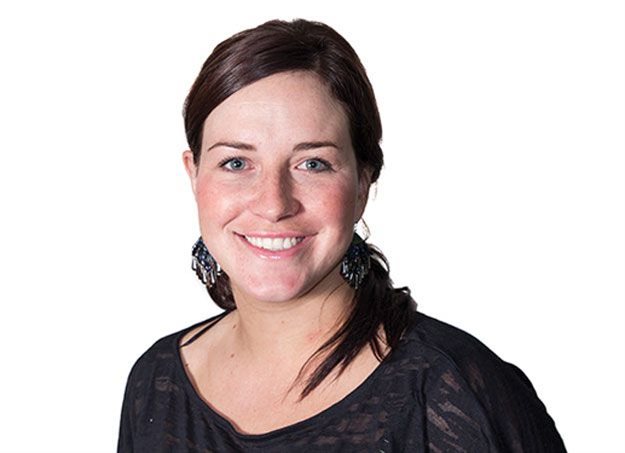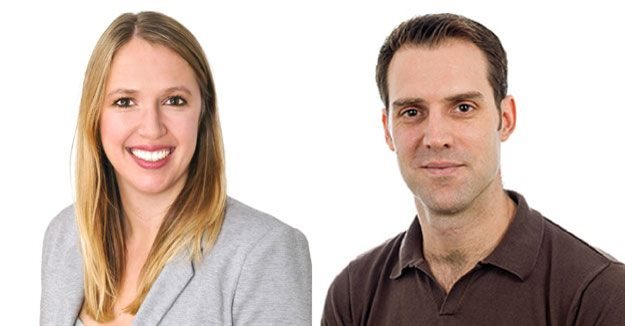
Top stories





Marketing & MediaAds are coming to AI. Does that really have to be such a bad thing?
Ilayaraja Subramanian 23 hours

More news















Payprop's CEO, Jan Davel; head of operations, Charl Burger; head of client services, Chantelle Nieuwendyk; head of data and analytics, Johette Smuts; and head of sales, Sarah Whitehead, share their take.

Charl Burger: My gut response was one of concern for the physical and emotional wellbeing of our employees, but also concern over the effect of the lockdown and thoughts of when things would go back to ‘normal’. The resilience of our staff members was incredible. Even though every day presents its own challenges, overall, everyone has made the best of their unique circumstances.
Chantelle Nieuwendyk: At first it was survival mode – coming up with a plan to get everyone set up to work remotely in two days. Making sure we had the right technology to enable everyone to work away from the office was my biggest concern. I was also worried that load shedding would become an issue, placing tremendous pressure on our resources.
Jan Davel: Our support team was my biggest concern – the real challenge for them was to maintain their high service level and continue delivering awesome customer service, while figuring out how to support our clients from home during lockdown. We knew they could face challenges, including noise and distraction, with some having to care for children and relatives, but all of these are amplified by connectivity issues including poor reception and bad internet connections.
I think our level of support is unique in the industry. Our support team is not just a call centre, they have built relationships with our clients – some going back over 15 years. Our clients trust us with their business, so we had to do all we could to help our support team while they helped our clients. This is turning out to be the most difficult time property businesses have ever faced, so offering a friendly voice at the other end of the phone who understands their business has been really valuable.
Everyone at PayProp in South Africa has responded well to the challenge, with our entire team working remotely since the end of March. From an operational and HR perspective, I have been very happy with the result, considering we only had two days to plan. Our staff have adapted and, very importantly, have made an effort to keep in contact with each other remotely. We also have not suffered the load shedding we feared so far during the lockdown.
Burger: We are all in this together, so when the rental market drops, so does our income – clients only pay us a service fee if they receive rent. Since the lockdown, we have seen rent arrears build up as tenants miss payments or make partial payments.
Nieuwendyk: Across all provinces, we have also seen fewer rental invoices being sent to tenants. This could be because tenants are negotiating payment holidays or deferments with their agents and landlords.
Davel: Our platform data has shown us that some damage deposits have been released to provide a short-term cash flow solution. While we advise against it, we understand these are extraordinary times. If agents need to release damage deposits, they need to make sure there is an agreement between all the parties on how and when the deposit should be topped up again. We would advise that this is in writing and added as an addendum to the lease agreement. It is also important to avoid vague terms like ‘until the lockdown is over’ as they are hard to enforce at a later date.
Johette Smuts: PayProp’s platform data already shows an increase in tenants in arrears from March to April, and we expect an even bigger arrears increase in May and June.
Burger: Our entire team has worked hard to continue to run our business as normal, even though everyone is working remotely. Although we are able to return to the office under certain circumstances, we have decided to minimise the risk to our staff and keep working remotely.

Sarah Whitehead: Our sales team has always worked remotely, but before the lockdown the focus was on face-to-face selling. In this digital age, we prided ourselves on our in-person client visits and demonstrations. This was how we established rapport and built strong business relationships over time.
Overnight, our entire sales cycle needed to change to fit lockdown conditions. Right away we started running sessions on Zoom and relying on other collaborative tools like Slack and Google Docs.
PayProp teams were quickly equipped to deliver all client interactions digitally. We have also used the new tools to schedule morning Zoom coffee catch-ups and activities to keep team members engaged and upbeat, and foster a calm but productive atmosphere.
Our approach to prospective clients has always been consultative. At the moment, the conversations we’re having are all about how to keep our prospective and current clients open for business and collecting rent. Understanding their needs, concerns and beliefs has helped us find solutions to protect their businesses and future-proof their operations. These lessons will continue to help us and our clients in a post-lockdown world.
The extended lockdown has forced us to be even more efficient and fully embrace the remote sales model.
Burger: The lockdown has shown us that we needed to rethink the way we approach work. There are so many opportunities that come from a distributed working environment. We shall be revisiting current strategies and incorporating our experience from lockdown into a more productive way of working.
Davel: Our cloud-based rental payment platform has enabled PayProp-powered agencies to continue to process payments uninterrupted. The opportunity for us is to continue encouraging clients to use PayProp to its full potential and show other agencies the benefits of adopting PayProp, allowing them to collect and process rent from anywhere, at any time.
Most of the challenge for PayProp has been managing change – by adapting to a distributed working process. During lockdown, we have continued to be very effective and very efficient over these two months. There is a lot we can learn from this, and no reason for us to automatically revert back to pre-Covid-19 ways of working once the lockdown is lifted.
Burger: The loss of a shared working environment, especially in close-knit teams, was hard for some staff members. Regular digital check-ins went some way to address this. To ensure everyone’s safety, all staff members have been working remotely and will continue to do so for the foreseeable future.
Nieuwendyk: We see occasional dips in morale throughout the team during the month, but it’s great to see how open everyone has been about how they are coping. The response and camaraderie across the team in supporting each other has been wonderful to see. Everyone continues to work hard while finding time to play a game, laugh about something they have read or discuss something that concerns them.
Davel: Physical distancing has not been an issue for us as we have made it mandatory for all staff to work from home. PayProp has moved entirely to a ‘distributed’ workforce as, at the moment, there is not a central hub office to coordinate everything from.
Nieuwendyk and Davel: When the office reopens, PayProp will be adhering to all the legal requirements, including physical distancing. It will be a phased return, with teams prioritised according to necessity. We’ll be keeping numbers down so those who come back to the office first can keep a safe distance from each other – as well as providing hand sanitiser and anything else required to keep everyone healthy. Visitors and guests will not be permitted and we will be advising staff to limit their contact with others during breaks and lunch.
Burger: Adapting to the ‘new normal’ has been vital. Everyone is currently working from home and we had to quickly put processes in place to make that possible for the safety of everyone at PayProp.
Working from home has had its own unique challenges and made us all adopt a more flexible approach, but the team has been great at staying motivated and productive.
Nieuwendyk: Estate agencies are becoming more innovative in the way they work. They have quickly adopted technology including virtual tours, digital signatures and video calling. The importance of saving documents in the cloud has also become clear. The industry will walk out of this, in my view, being more comfortable with technology.
Smuts: This crisis has shown that the industry is very resilient. It has also highlighted that while the estate agent’s role may change, their job will not be easily replaced.
Burger: More and more businesses have been forced to adapt to a digital environment. If this continues after Covid-19, we will see less time taken up by travel, allowing people to do more with the time saved.

Burger: Keep strong, we will get through this. Be as vigilant as ever for scammers and fraudsters who will also adapt to try and con hardworking business owners, landlords and tenants out of their money.
Nieuwendyk: Do not lose sight of your business. It is important to keep doing spot checks on your accounts, rentals and payments, and keep accurate records. Do not lose touch with your team, they’ll be vital when the recovery comes.
Smuts: Embrace change and technology to scale your business. Technology is your friend and can be used to automate many functions, allowing you to focus on the tasks that deliver the best returns for your business.
Davel: Hang in there. Although we are all in a tight spot at the moment, things will get better again. Lockdown and Covid-19 are temporary disruptors and disablers, but real estate is permanent – a basic need of humankind. Real estate is the only asset or investment commodity that you can live in.
At the end of the day, a real estate agent’s role is to enable a transaction – they need to be there for landlords, tenants, buyers and sellers. South Africa will soon start renting and buying again, so now is the time to prepare for an upswing in activity. Deeds offices and municipalities are coming back into action, and cashflows will soon improve once the backlog of sales transactions has been attended to.
As an industry, we can get through this rough patch – we need to be tenacious and acknowledge that there are reasons for optimism. There is a correction of property prices, especially in affluent markets, making it more affordable to buy. We think this buyers’ market will be with us for quite some time as interest rates remain low and banks have an appetite to lend. The affordable housing market is still booming and there are excellent opportunities for both first-time home-buyers and property investors.
More millennials are entering the housing market and since studies show that only 40% of millennials are interested in home ownership, there are excellent buy-to-let opportunities.
Burger: We shall have to plan for contingencies, including illness, to ensure that we are able to provide the same level of service our clients are accustomed to. Also, we will maintain a distributed workforce for as long as there is a need for social distancing.
Smuts: I expect to see continued subdued rental growth over the coming months as tenants recover from the effects of lockdown on their finances. We might even see negative rental growth, with rent getting cheaper year-on-year, but only time will tell.
Davel: Hopefully, the lockdown restrictions will soon be lifted – gradually, of course – and some economic activity will resume. Estate agents are going to be extremely busy once consumers are able to relocate.
I do, however, feel it will take a while for tenants’ finances to improve. As John Loos from FNB says, “It is tough to tell how long the tenant payment decline will last.” It is almost impossible to predict how long the country will be in recession, but it will depend on how well South Africa and the world can adapt to and contain Covid-19.
One challenge awaiting rental agents once this crisis is over is collecting arrears payments. As well as following up with tenants who have fallen behind on the rent, agents will also have to collect deferred payments that have been negotiated during lockdown and replenish any damage deposits that have been paid out to avoid short-term cash flow issues.
Although I am sure the industry will go about this in an understanding and compassionate way, it is important that tenants meet their obligations under their lease agreements – including any amendments agreed to during lockdown.
Looking at the unemployment data coming out, it is clear that for some tenants the rent may have become unaffordable. I expect to see a decline in high-value rentals as prudent tenants look for cheaper accommodation.
Unfortunately, I do not expect much in terms of macroeconomic policy changes that would stimulate business confidence, job creation or economic growth.
